The Food You Are Eating
Do you know where your food come from?
They say we have to eat more greens and veggies and buy local food, do you know how your food is made?
I was taking a drive around my neighborhood looking at the fields where the food is produced, not just our food, but the food the animals we eat.
The plastic the farmer uses to bail grass in keeps flying around and landing in the fields and get stuck on fences.
When the plastic gets stuck the wind starts ripping it up into small pieces, microplastic, that again go into the fields, the grass or produce gets cut, the animals get fed with grass with plastic in it and we eat these animals.
What will happen in the next 100 years?
Will we get better at cleaning up our plastic?
As I have noticed this problem have just been getting worse for over time, it seems like the farmer doesn't even care about all the plastic floating around in their own fields...
Do you care?
We have all seen the news about whales eating plastic garbage from the ocean and die. Recently some local fishers found a cod that had swallowed a whole plastic bottle, we don't want to eat fish that have been eating plastic, do you want to eat meat that have been fed with microplastic?
Plastic is a HUGE problem in today's society, humanity have have made a new floating continent of plastic floating in the ocean, what will come of this? Will this be the end of life on earth as we know it?
What do you think? Lets get the conversation going in the comments below.
This is just some of the pictures I took while driving around, the problem is much bigger than these pictures show.
Original (4608x3456)
Location: Jæren, Norway
Camera: Nikon P900
No filter have been used
No editing have been made to these photos
Photographer: @flatman
Latest Post: Wild Strawberry Update
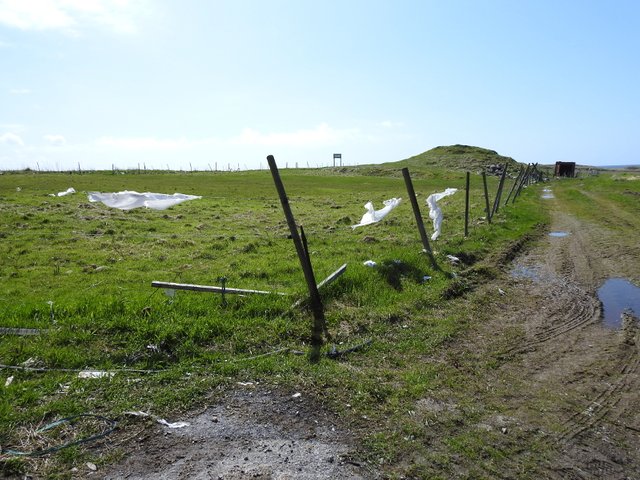
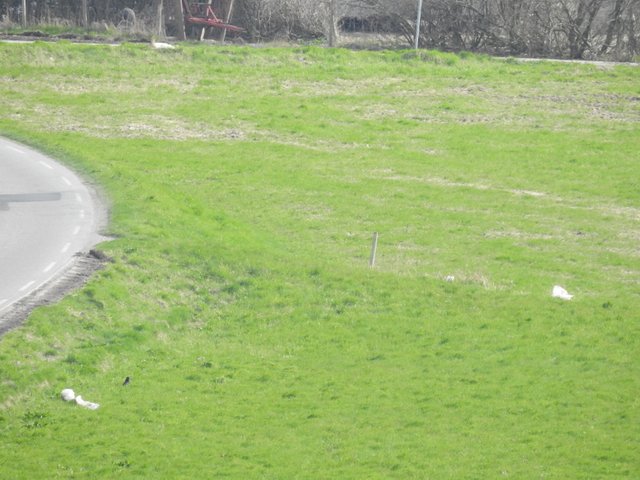
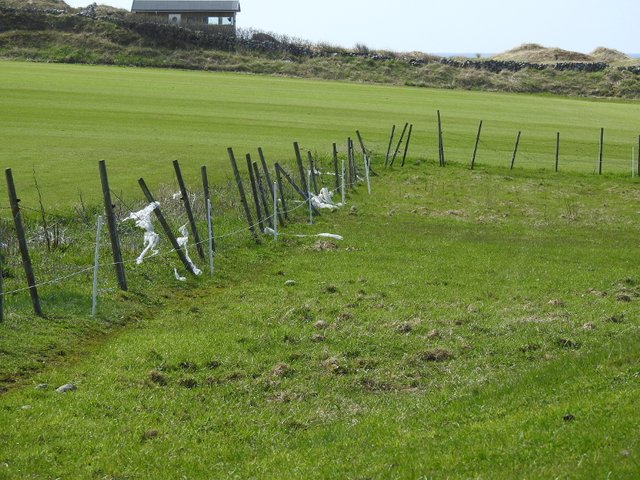
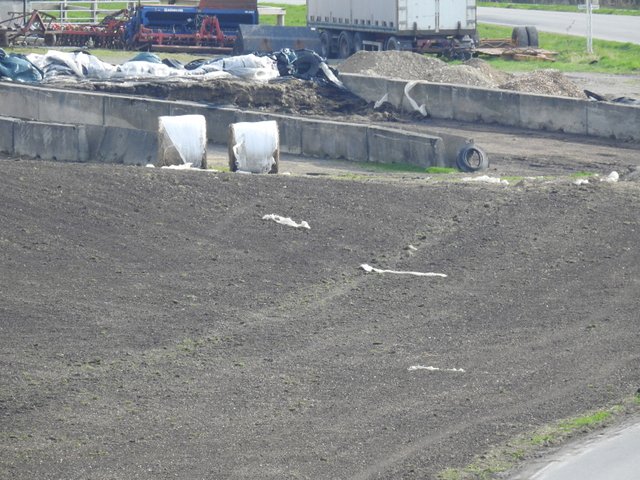
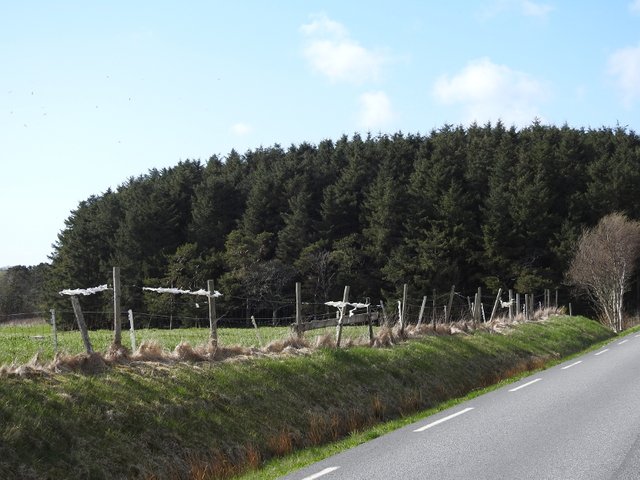
Implicit in the argument that local farming is better for the environment than industrial agriculture is an assumption that a “relocalized” food system can be just as efficient as today's modern farming. That assumption is simply wrong. Today's high crop yields and low costs reflect gains from specialization and trade, as well as scale and scope economics that would be forsaken under the food system that locavores endorse.
The main reason for localised production to gain popularity is based exactly in the same framework as what Flatman talks about. To do whats better for the nature we depend on. Being because local food can be more ripe when harvested because it wil not travle far before it gets to the store or end customer, and spessifically, that, there is little energy and pollution produced from transporting it half way accross the world. And when you buy local food you support the local community that is also important.
In addition the negative environmental impact from large scale spessialized farming is what emerges when that becomes the focus, to be as profittable as you can on your farm. Then spending more time to make sure the plastic isnt ending up in the soil isnt proffitable, unless people dont buy from u unless you do care, but large scale farms sell to other corporations that do not care . Aswell as its depleting the soil of its nutrients and not really feeding back biomass into it. As thats not proffitable compared to just using chemical fertalisers. Not to mention the chemicals used to keep weeds and bugs away.
I could go on, but I hope you get the point.
I agree with your argument. «local food» is very inefficient when i comes to distributing the products economically and as such, less green.
Awareness on where the food we eat comes from is important indeed, being why I take part in a local Plotted farm(?) (Andels landbruk) where we buy vegitables directly from the farmer in some arangement where we help with what we can and harvest it directly ourselves. A cooperative farmin of sorts. There probbably is a name for it in english that i dont know.
This is what I see as one solution to directly take part in the food you eat. This isnt really a viable solution to everyone, but it is still a direction that other arrangements can in time be made where we can get more and more of the food directly from the farmer and thus a feedback to the farmer in how he does things can also be made.
This can potentially also fix or drastically reduce the plastic used in packing up the products being made for being sold in stores.
However, what I don understand , or see the logic in, is how this micro plastic suposedly gets into our foods. Because the plants dont take up litteral particles of plastic from the ground. They take up nutrients through the barrier of the outer layer of its roots. So from my understanding the micro plastics dont actually get into out food, unless we dont wash it enough, as in there being some dirt on it. That does not mean that the plastic does not do damage by being in the ground. It does damage in diferent ways, from my understanding.
The only way I see this could happen, is if the plastic molecules mimics other nutrients that the plant takes up.
Great comments @jostein! always love your opinions!
the way we get plastic in our food is when the farmer is too lazy to pick up the plastic in the fields, and then cuts the grass, plastic will follow the grass and be fed to the animals we eat, so no, we dont eat plastic directly, nor does our plants as we know of (this might change in future) if as you say the plastic manages to mimic the molecules of other nutrients .
There is hope for us still tho! Fungus, we don't really know what fungus is, but we know that fungus can eat plastic and other petroleum products, we should plant more fungus around.
The age we live in now will likely in the far future be called "the plastic age" by us geologists.
50 million years into the future we will still be able to easily find our age in the stratigrafi. Just like we can still find the extinction event from when the meteor hit the earth 65M years ago as a fine layer of debris all over the globe.
Our consumer life style is already a very distinct part of the geology.
http://www.techtimes.com/articles/128512/20160128/plastic-become-part-earth-geology.htm
Interesting and good post. Plastic is everywhere!
yes it is! and we need to get people aware of this problem
Kjempe flatman!
interesting post, many things we don’t know 👍🏻 GREETINGS
Hi, we have voted on your post because you have posted your article to either food, recipe, recipes, cooking or steemkitchen #tag. Steemkitchen is a brand new initiative where we want to build a community/guild focused purely on the foodie followers and lovers of the steem blockchain. Steemkitchen is out of the conceptual phase and growing each day. We would love to hear your thoughts and ideas.
We are almost ready to Launch the first Decentralized Recipe and Food Blog Website that will utilize the Steem BlockChain and its community to reward contributions by its members.
Please consider joining us at our new discord server https://discord.gg/XE5fYnk
Also please consider joining our curation trail on https://steemauto.com/ to help support each other in this community of food and recipe lovers.
Kind Regards
@steemkitchen
Ps. Please reply “No Vote” if you prefer not to receive this vote and comment in the future.
Good post :)
Nice than